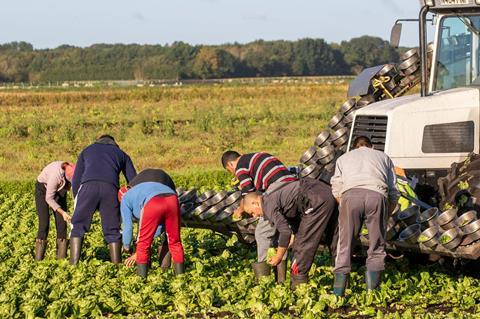
UK-grown supplies of fruit & veg could fall by a fifth, with many businesses going bust, unless producers see drastic hikes in farmgate prices to reflect the soaring cost of production, a report for the NFU has warned.
Growers were facing an “existential crisis”, with year-on-year input inflation rates ranging from 11% for apples to 24% for onions, according to the report, by agricultural consultancy Promar International.
Other crops included in the study – representing about 50% of the UK’s total horticultural production – included mushrooms, lettuce, tomatoes, carrots and broccoli, which saw input inflation ranging from 13% to 19% over the past year.
Driven by an 80% increase in energy costs, a 75% hike in fertiliser prices and a 50% rise in diesel costs, the horticulture sector was also facing significant inflation in packaging costs (up 25%), labour (up 15%), plant and raw materials (up 17.5%), chemicals (up 10%) and even seeds (up 5%), Promar found.
These inflationary pressures were reflected in a 19p increase in the cost of production for a standard 300g pack of mushrooms, a 9p increase for a 400g pack of tomatoes and a 7p rise for an iceberg lettuce.
Free-range egg sector will face “mass exodus” without price increase
And unless these soaring costs were reflected in big increases in farmgate prices, and soon, the report – seen exclusively by The Grocer – warned, many producers would quickly become “unable or unwilling to carry on growing”, and would be forced out of the sector altogether.
Input inflation rates per sector:
- Onions – 24%
- Mushrooms – 19%
- Lettuce – 18%
- Tomatoes – 17%
- Carrots – 14%
- Broccoli – 13%
- Apples – 11%
How inflationary pressures have increased productions costs per product:
- Mushrooms – 13p
- Tomatoes – 9p
- Lettuce – 7p
- Apples – 7p
- Broccoli – 5p
- Onions – 5p
- Carrots – 3p
Key drivers of inflation for horticulture growers:
- Energy – 80%
- Fertiliser – 75%
- Diesel – 50%
- Packaging – 25%
- Plant/raw materials – 17.5%
- Transport – 17.5%
- Labour – 15%
- Ag-chems – 10%
- Seeds – 5%
Source: Promar International/NFU
Its stark warnings echo those from the struggling dairy, eggs and pork sectors in recent weeks, with Promar estimating between a 10% and 20% drop in UK production without positive pricing action from produce buyers as a worst case.
Other scenarios mapped out an increase in produce being left to rot in fields. “We were told on several occasions that this had happened already with between £200,000 – 300,000 worth of produce simply disposed of,” the report authors said.
Any shortfall in UK supply would normally be supplemented by imports. But with global supply chains feeling similar inflationary pressures that had also been exacerbated by the war in Ukraine, the report warned fresh produce supplies ran the risk of being “constrained and compromised”.
However, many of the farmers interviewed by Promar had little confidence they would ultimately be able to renegotiate prices with their retail customers. Once prices were set for the season, there was a culture in fresh produce of them being set, the report suggested.
“With the retailers it really is a game of cat and mouse… we have agreed prices with them some time ago, they know our costs are going through the roof, they know we have crop in the ground and know we have to be able to sell it,” said one grower.
Growers warn of tomato shortages due to supply issues
“Some have been a bit more predisposed to discussions on the potential to increase prices to them… but we also know they are highly reluctant to pass on additional costs to consumers too,” another noted.
“The current level of inflationary pressure facing British fruit and veg growers is unprecedented,” said the NFU’s new horticulture and potatoes board chair Martin Emmett.
“While growers are doing everything they can to reduce their overheads, some are experiencing double or even triple digit inflation for key products like fertiliser and energy. If this pressure continues, it will be simply unsustainable for some businesses to continue as they are.” Growers wanted to continue filling supermarket shelves with their produce, and go even further by growing self-sufficiency, he added.
“But this report presents the stark reality of what will happen if we continue without any action from the rest of the supply chain to bear some of the cost pressures and ensure a fair return for growers.”
Losing growers at a time when people wanted to see more British food in shops would be “a huge loss, not just for UK horticulture but for the entire nation”, he pointed out.
“farming needs long-term planning and investment, so the current situation, if left to continue, will mean dire and irreversible consequences for the future of British horticulture.”







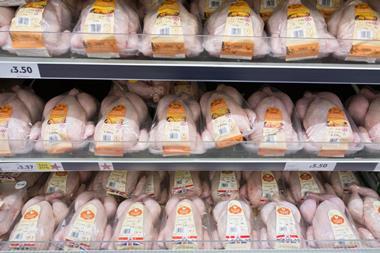
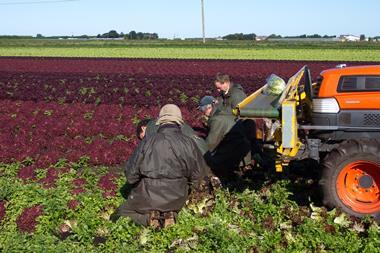
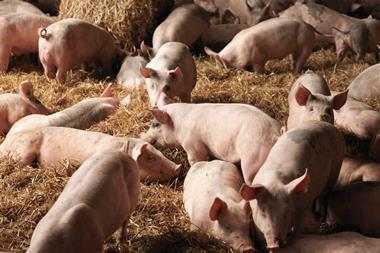
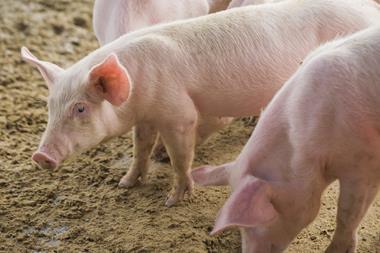
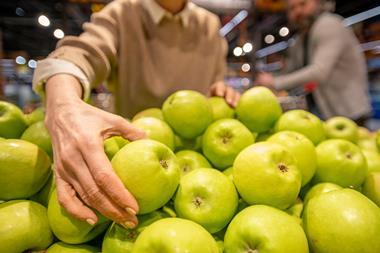
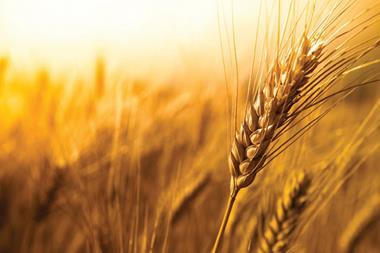






No comments yet